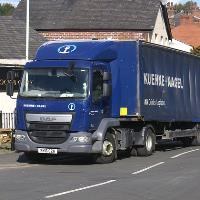(LUXEMBOURG) – The European Court of Justice upheld Thursday fines imposed by the Commission on a number of companies for their participation in cartels in the international air freight forwarding services sector.
In a decision of March 2012, the European Commission imposed fines amounting in total to EUR 169 million on a number of companies by reason of their participation, in periods between 2002 and 2007, in various agreements and concerted practices on the market for international air freight forwarding services.
The services included the organisation of transportation of items, and could also include activities such as customs clearance, warehousing or ground services, on behalf of customers according to their needs.
The Commission held that the anti-competitive conduct of the companies, which agreed on the fixing of various pricing mechanisms and surcharges, gave rise to four distinct cartels.
The ‘new export system’ (NES) cartel concerned a pre-clearance system for exports from the UK to countries outside the European Economic Area, which was introduced by the UK authorities in 2002. A group of freight forwarders agreed to introduce a surcharge for NES declarations.
The ‘advanced manifest system’ (AMS), introduced after the terrorist attacks of 11 September 2001, describes legislative provisions of the United States customs authorities that require companies to submit in advance data on goods that they intend to ship to the United States. A number of freight forwarders coordinated the introduction of a surcharge applicable to the AMS service, for the electronic communication of the data concerned to the United States authorities.
The ‘currency adjustment factor’ (CAF) cartel was designed to achieve agreement on a common tariff strategy in order to deal with a risk of a fall in profits owing to the decision of the People’s Bank of China in 2005 that it would no longer peg the Chinese currency (renminbi or RMB) to the United States dollar (USD). A number of international freight forwarders decided to convert all contracts with their customers into renminbi and to introduce a CAF surcharge, setting the amount.
Last, the ‘peak season surcharge’ (PSS) cartel concerned an agreement between a number of international freight forwarders relating to the application of a temporary rate adjustment factor. That factor was imposed as a reaction to increased demand in the air freight forwarding sector at certain times, which led to a shortage of transportation capacity and an increase in transport rates. The agreement was designed to protect the freight forwarders’ margins.
A number of the companies concerned brought actions before the General Court for the annulment of the Commission’s decision or for a reduction in their respective fines.
In its judgments of 29 February 2016, the General Court upheld the amount of the fines imposed on Kühne + Nagel International, Schenker, Deutsche Bahn and Others, Panalpina World Transport (Holding), Ceva Freight (UK) and EGL. Those companies, with the exception of Ceva Freight (UK) and EGL, brought an appeal before the Court of Justice asking that the General Court’s judgments be set aside.
In today’s judgments, the Court of Justice rejects all the arguments put forward by those companies and upholds the amount of the fines imposed. It declares in particular that the General Court was correct in holding that it is appropriate to base the calculation of the amount of the fines on the value of sales associated with freight forwarding services as a package of services on the trade routes concerned.


